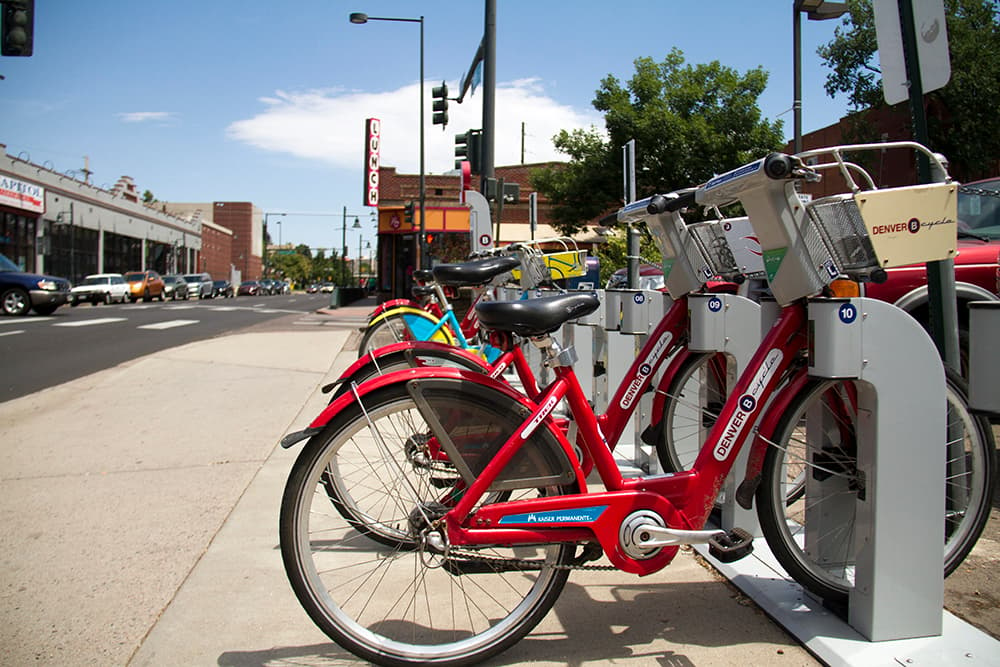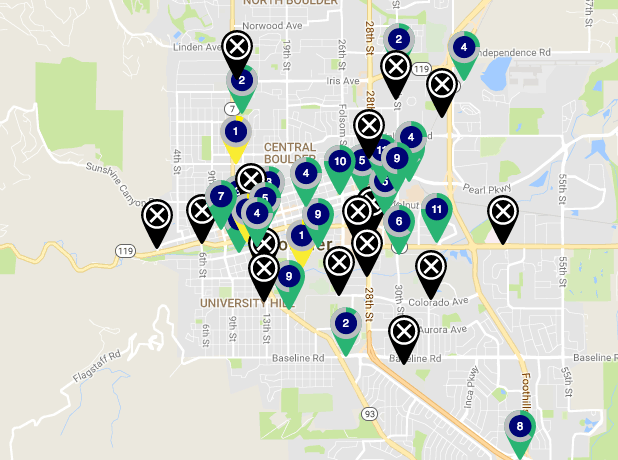
More than a dozen of Boulder's bike-share stations were disabled this week as a rare run of cloudy and cold weather disrupted their solar energy systems.
Before you go and assume that this proves solar power can't work, though, let's talk about what happened.
The stations are where people rent and return Boulder B-cycle's bicycles. About half of Boulder B-cycle's 43 stations are solar-powered, and about 15 were running into problems on a typical morning this week.
"Below a certain battery voltage, our station computers die and lose connection with our database, which renders them completely unusable," wrote Kevin Bell, the program's marketing director, in an email to Denverite.
The program's administrators were well aware that winter weather can affect the stations' power supplies, but "this year the problem has presented itself earlier and far more aggressively than anticipated," as Bell explained in a blog post.

Each station has batteries that can last for about 48 hours without direct sunlight, according to Bell. B-cycle usually can keep the stations running through storms by charging batteries directly off the electric grid and swapping them out.
This is a pretty common answer to concerns about whether solar power is reliable: A combination of batteries and alternative power sources is supposed to serve as a back up.
However, Boulder B-cycle can only charge eight batteries at once. After seeing this week's problem, program administrators are considering buying higher-capacity and faster-charging batteries, upgrading its charging system and buying better solar panels.
In other words, solar operators in a sunny state like Colorado may occasionally be surprised if they're not prepared for unusual weather.
As of 1:30 p.m. on Friday, as the last clouds cleared away, B-cycle showed nearly all of its Boulder stations as operational.
Denver B-cycle has dealt with similar issues in the past, but it's unclear whether it was affected this time. All Denver stations were operational on Friday afternoon, according to a station map.
Solar power is expected to become a bigger and bigger part of Colorado's future. Xcel Energy wants to make renewables more than half of the state's energy supply by 2026.











